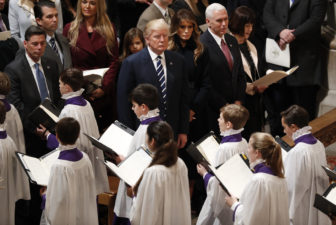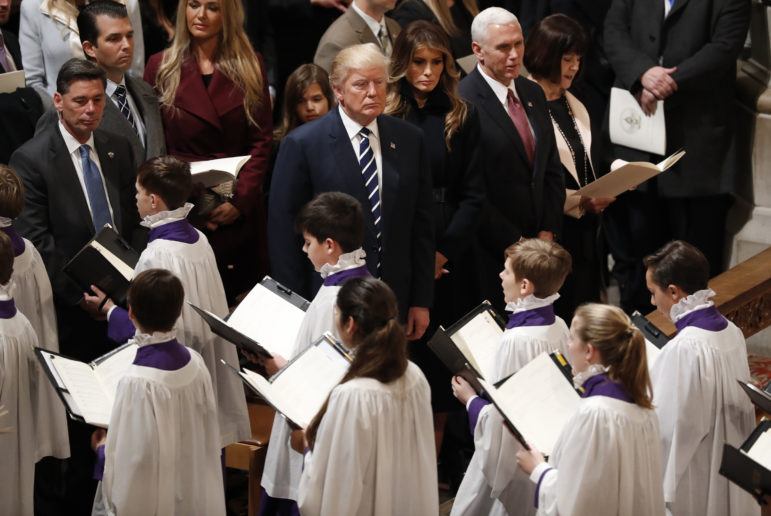
In the Trump Era, white evangelicals have dominated the story of religion and American politics. How can those people (continue to) support him? What ails them? What explains them?
Not only have these questions sucked all the air out of room, but it’s hard to write about anything else, since white evangelicals are the only religious grouping that most survey researchers—always responsive to the narrative-du-jour—currently ask about and report on.
But here and there surveys of other groups exist, and these make clear that the narrative needs to be changed.
Most importantly, at the end of December Gallup released a report with illuminating cross-tabulations for religious and political identification, religiosity, race, and Trump support. Based on 126,000 telephone interviews conducted over the previous year, the report shows that Trump’s base consists not of white evangelicals but of religious white people in general.
Specifically, non-Hispanic whites who described themselves as highly religious approved of Trump 2-1 (64 percent to 32 percent), while the figures were reversed for non-Hispanic whites who said they’re not religious. “Moderately religious” non-Hispanic whites approved of Trump 54 percent to 42 percent.
By contrast, the non-white rest of the population indicated virtually no variance by religiosity. Seventy-three percent, 74 percent, and 77 percent of the “highly,” “moderately,” and “not religious” respectively disapproved of the president.
Although Gallup does not distinguish between evangelical and non-evangelical Protestants (grouping both into “Protestants/Other Christian”), we know from Pew that among white evangelicals, more regular churchgoers are more likely to support Trump.
In January, Gallup reported that 61 percent of Mormons approved of Trump’s job performance. Mormons are mostly white and have by far the highest religiosity rating (74 percent) of any major American religious community.
The same Gallup report showed 51 percent of white Catholics approving of Trump, while, earlier this month, a Pew survey found that 48 percent of mainline Protestants (who are mostly white) approved of him while 46 percent disapproved. Based on Gallup’s December report, we can conclude with some confidence that it’s the more religious white Catholics and mainliners who are supporting Trump.
And let’s not forget the Jews. According to a survey conducted by the American Jewish Committee last fall, even though 77 percent of all Jews disapprove of Trump’s performance, 71 percent of the Orthodox—the most religiously observant—approve of it.
The bottom line, then, is that what some consider the religious problem with Trump’s support is not a white evangelical problem but a white Judeo-Christian problem.
In 19th-century Europe, the Kulturkampf was between the Catholic Church and the secularizing state. In 21st-century America, the culture war is between religious white people and everybody else.






